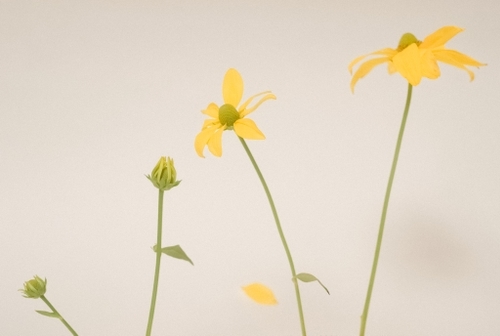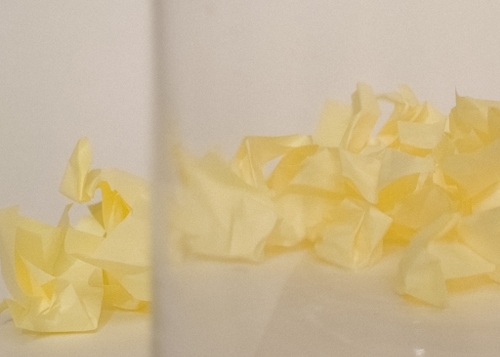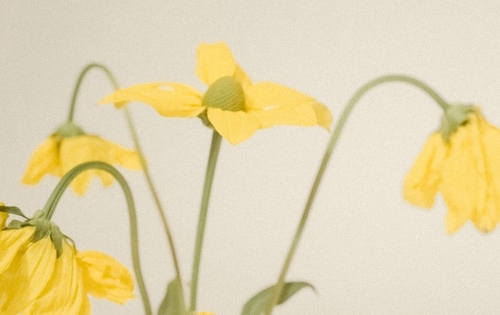Z
E

Around Dec 2019, I started looking for new opportunities. For the first 15 months, I failed all interviews I've got. Failing could look the same from the outside, but failing at the first stage is completely different from failing at the third stage of the interview process. If you're progressing then you're in fact succeeding.
All the notes are based on personal experience, information might not hold true to all companies. Please see it as a reference not as a source of truth :)
The entire journey felt like having emotional rollercoaster again and again. But the good part — the wise design managers you get to meet and the mentorships you get to have along the way — remember to make those count as well. Stay positive, be patient.
Recruiter screening
Designer screening
Onsite interviews
Team match
Type
Interview
stages
Past experiences
Soft skills (drive, intentionality and self-awareness)
Hard skills (product thinking, visual, interaction)
Schedule 3-6 days ahead, result received in 3-4 days
Schedule 3-4 weeks ahead, result received in 1 week
Schedule 1-2 weeks ahead, result received in 1-2 weeks
Search and interview for 4 weeks, formal offer received in 2.5 weeks
External-facing recruiter *
Phone call
Phone call, video call
Video call
Portfolio presentation
App critique
Senior designers, design manager, internal-facing recruiter
Hiring manager, designer manager, senior designers, cross-functional team member, internal-facing recruiter
Hiring managers, designers on the team, internal-facing recruiter
Video call
Portfolio presentation
App critique
Problem solving
Design manager 1on1
Senior designer 1on1
Cross-functional member 1on1
Hiring manager 1on1
Senior designer 1on1
Timeline
Decision makers
[fig 1] Interview process
* External-facing recruiter will only be your contact during the 1st-2nd round, once you start scheduling onsite you'll get another internal-facing recruiter to be your advocate.

It's hard to talk about something you have done repeatedly and passionately. But by presenting it often, you can start to remove the mundane digressions and begin to focus on the fascinating findings that shaped or refined your design decisions. In other words, focus on why you did certain things rather than what you have done. Observe the room and write down the follow-up questions your audiences asked so the story structure can be improved effectively. List keywords, objectives of each slide to ensure the four pillars - product thinking, intentionality, visual and interaction are covered.
Format: 30-45mins total with a short self introduction and deep dive into 2 projects.
It took me a while to learn that being critical doesn’t mean being negative, so don’t purely focus on things to improve. Make observations on the not-so-good (inconsistency, lack of affordance, hard to navigate, etc.) but also the good (usability, reachability, scanability, etc.). Then justify your suggestions based on the company’s high-level business, user, and stakeholder goals or the foundational design qualities, including information architecture, UX/interaction, and UI/visual.
Format: 30mins total with a chosen App. (Common apps: Airbnb, Google Map, Youtube, Instagram, etc.)




It's a great time to practice the ability to improvise. Jazz players come into the room with a melody but play it as the band and the audiences go. The interviewee is expected to guide the conversation and the flow, so be prepared with a mental framework that works best for you. The three main steps I had were narrowing down the problem scope, exploring the solutions, and then deep-diving into one solution.
Format: 45-60mins total with 1 given design problem.
Every game has a boss battle and team match was that.
It was lots of back and forth and was very time and energy-consuming. Too many moving pieces including how many teams are hiring, how many of them are interested in you, how many candidates they are interviewing, etc. What helped me was to look through how the team writes about the role and find as many common interests as possible. Having a competitive offer on the table will also put pressure on the decision-makers.
Format: 30mins, free form and you get to ask lots of questions.
What projects are the team working on?
What is the team structure and how is the work distributed?
What are the platforms and tools that the team uses?
What are the most important things for the next 3-6 months? etc.
How does success look like for this role?
What is the level of autonomy for a person in this role?
Does the nature of work require me to be very versatile or am I focusing on one domain at a time? etc.
How much involvement do project managers and leads have in decision-making versus me as an IC?
If you have a magic wand to change one thing at your company, what would that be?
What's the last thing you really geeked out about? etc.
[fig 2] Question bank
At the end of every interview, there’s a 15 mins slot to ask your interviewers any questions. It’s a great moment when the power of the room shifts. You get to be the interviewer. And good interviewer like Sean Evans from the Hot Ones always does his research on his interviewees, either by reading their books or watching their talks, which makes the conversation much more intimate and enjoyable for both sides. Prepare a couple of questions, but don’t assume you know what you want. Then you’ll get the unexpected things.
Format: 10-15mins

It doesn't matter if you pass the interview or not, feedbacks are confidential so most recruiters won't share them with you. Listening and observing while interacting with your interviewers become important to make the next one better. The silent moment could mean they are marking down certain keywords you hit; follow-up questions could mean they are confused or zoned out.
The day-to-day work could be quite narrow, same old business model, core user flows, stakeholders, platforms, and devices. However, the interview touches on areas that require taking a step back to look at the big picture. It will challenge our imagination on solutions but be sure to ground them with constraints and design principles.
A meaningful and fruitful conversation is a 2-way effort. Find someone who is not only willing to commit their time and energy but also has the knowledge to provide valuable feedback. Practice with strangers would also help you find confidence in uncertainty.
There were times I lost myself, changing the resume just to fit into whatever it's in the job description, doubting my accent and my identity, or thinking I just lost my last shot. It was truly my faith and family that helped me get thru. I hope you have someone close to share the hard moments with.
Be thankful for the good and not-so-good, it's part of getting better at the things you do and at being you.
_Kermit the frog
footnotes
Ernest, Terence, Stephanie, Angela, Gary, Tobi, Adam, Trust in me and offer referrals
Wing, Adding questions to the question bank
Daria, Paola, Sarah, Amber, Super supportive recruiters